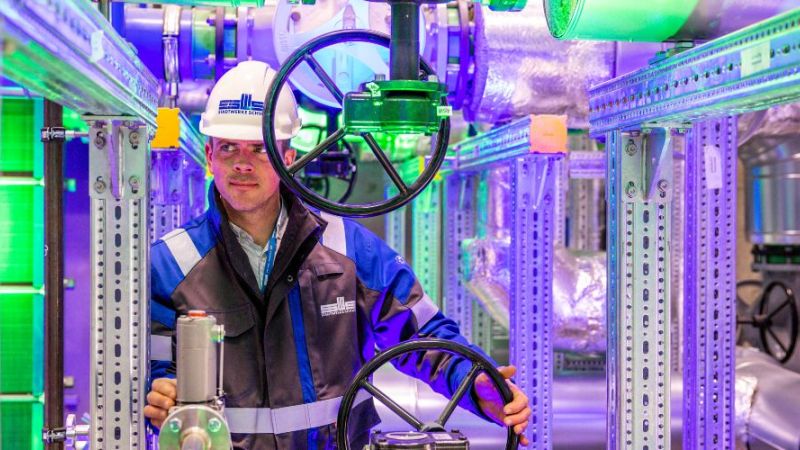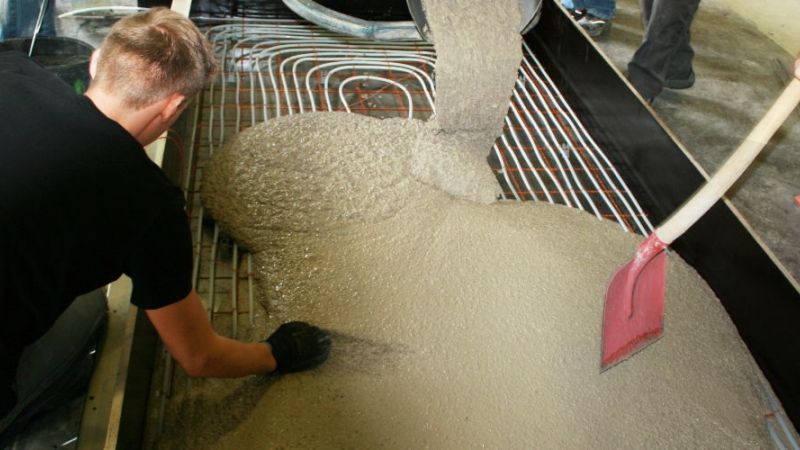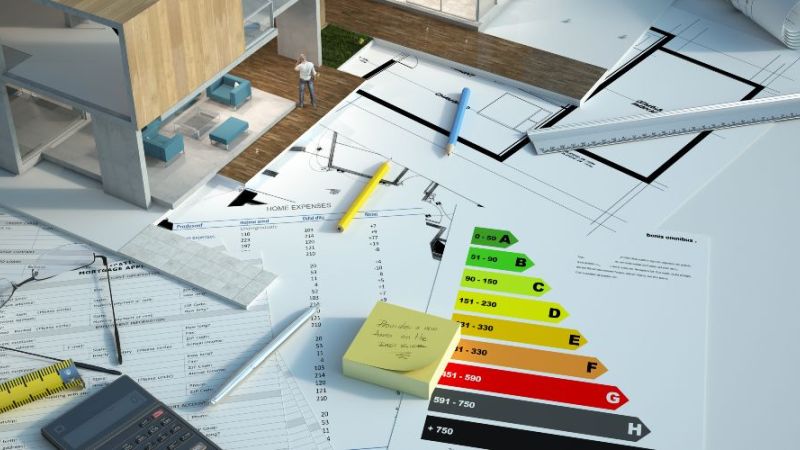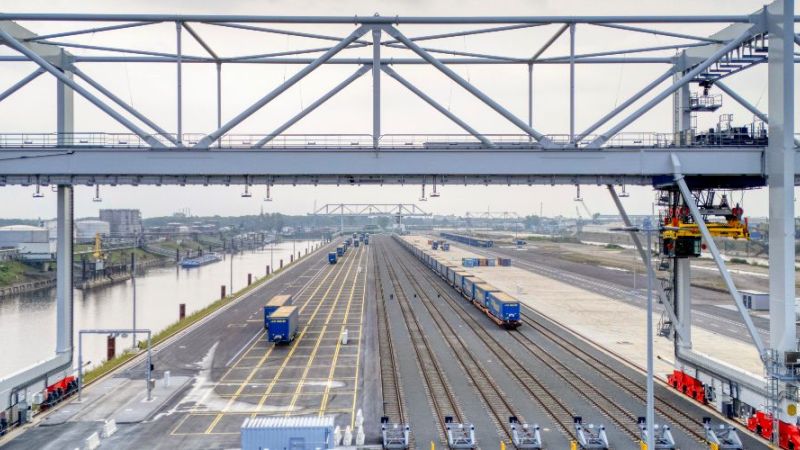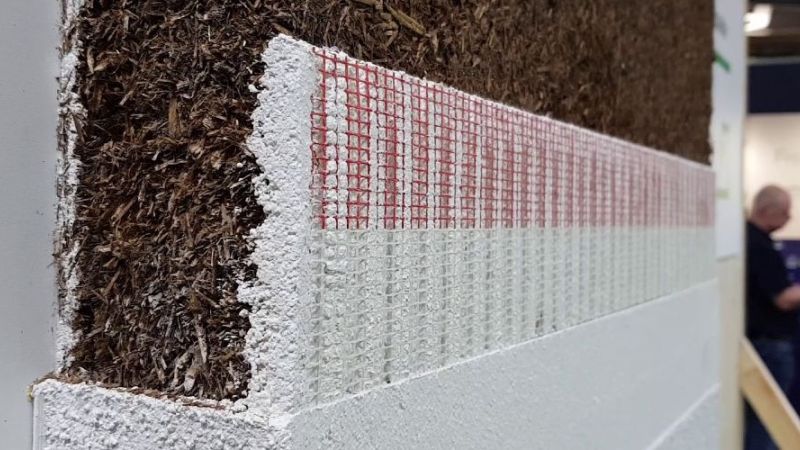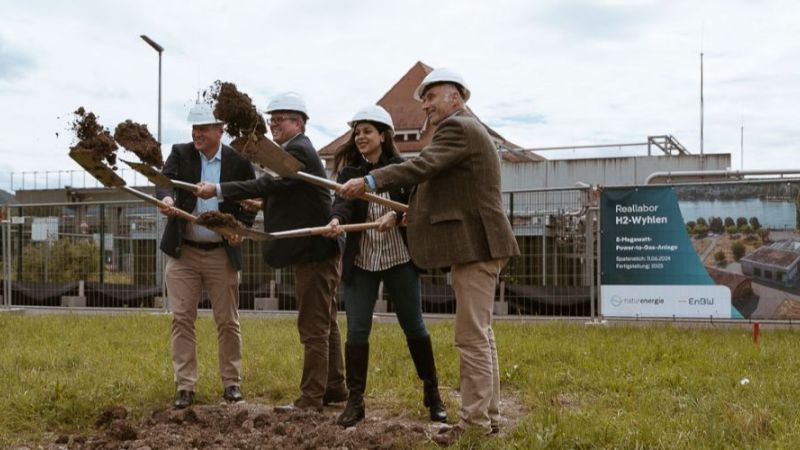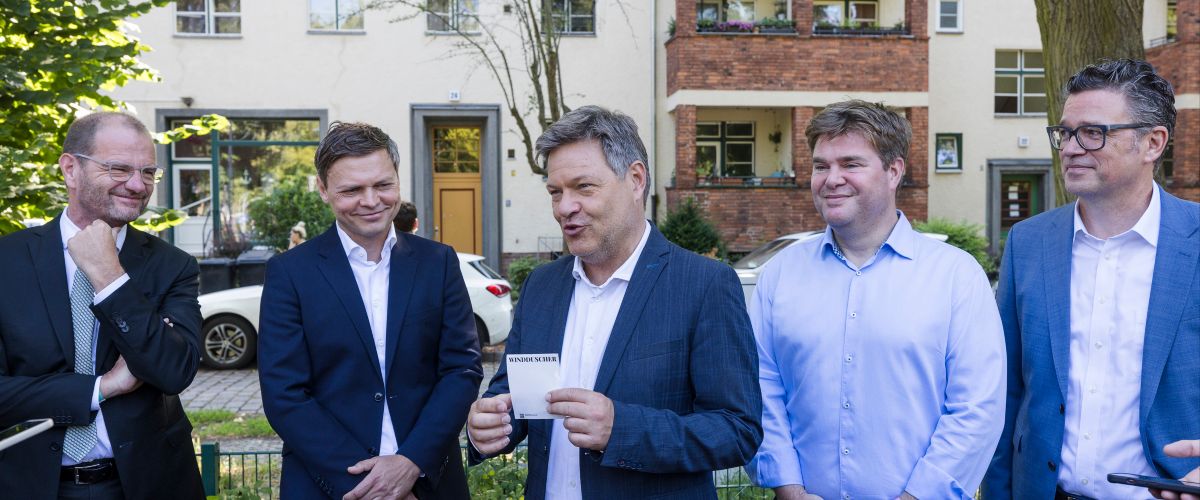 © decarbon1ze GmbH
© decarbon1ze GmbH
Digital Energy Transition
Federal Minister Habeck visits pilot installation for the management of micro-flexibilities
Distributed, flexible electricity consumption systems and accelerated digitalisation of the grids are important for reliable grid operation. In the FlexMC (Flexible Metering and Controlling) project, three partners have therefore developed practical solutions for how the consumption of time-variable systems such as heat pumps, electric vehicles and electricity storage systems can also be individually metered and balanced behind the meter in order to create small-scale flexibility for grid operation.
In this way, the distribution grid will be relieved and the electricity supply in the transmission grid will become more efficient and stable. Electricity customers can conclude individual tariffs for their flexible consumption systems, thereby contributing directly to the energy transition but also benefiting from it. The project partners have developed technical and organisational solutions for the smart metering infrastructure in order to enable a successful mass market for micro-flexibilities in existing buildings.
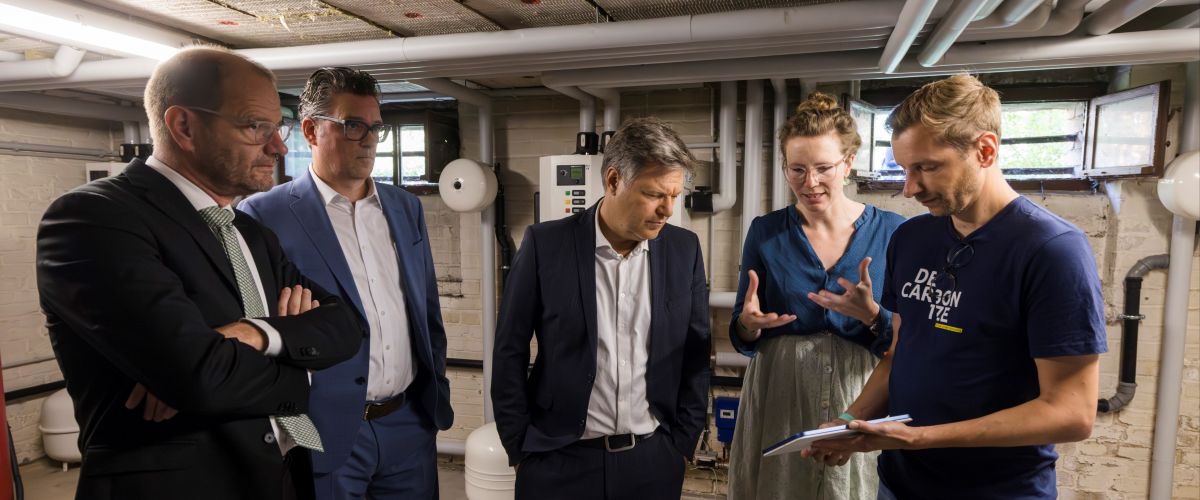 © decarbon1ze GmbH
© decarbon1ze GmbH
Federal Minister of Economics Habeck visited a pilot installation of the funding project in Berlin Pankow on Monday, 15 July 2024. The team gave him extensive insights into the research content and demonstrated the centrepiece of the project, the combined metering and control module DICAMM, live on site. DICAMM stands for Device-Integrable Control and Metering Module. The FlexMC project team has researched how sector coupling can also be promoted in private households and small businesses using digital solutions. There is still a lack of models suitable for mass billing and payment for flexibility. The DICAMM system is intended to make it possible to control individual appliances for individual flexibilities such as heat pumps, charging stations or PV storage systems in practice, thereby creating tariff incentives.
The grid operator 50 Hertz and the technology partners Theben and Decarbon1ze are involved in the funding project. Theben is developing solutions for the digital energy transition and building automation, while Decarbon1ze is developing digital metering and balancing solutions for small consumption systems. The BMWK has funded the project with around 880,000 euros as part of the energy research programme. (ml)

